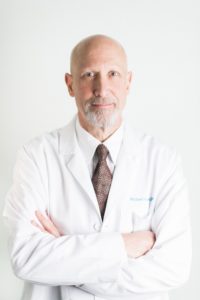Pioneer in Functional Medicine – Dr. Forman, PhD. ScD., DAOM

Sufferers of an ever-growing range of chronic degenerative health problems are finding themselves in a state of shock to learn firsthand just how limited current treatments are.
This is because the majority of recent medical treatment development has been focused on very expensive acute and emergency procedures and interventions – and not on the everyday problems most people face, such as high blood sugar, high blood pressure, chronic asthma, migraine headaches, and gastro-intestinal disorders.
As a result, patients are put in the unfortunate position of having less than an optimal response to ongoing treatment modalities. Totally frustrated, more and more people are starting to question traditional standards of care that poorly manage symptoms and fail to eradicate the problem.
Seeking a second opinion is always a good idea, but is rarely done these days. Instead, too many people are going from crisis to crisis, from specialist to specialist, and ultimately just going in circles.
But now there is hope. Dr. Michael Forman, PhD. ScD., DAOM, is emerging as “the ultimate second opinion” – because he is providing a truly integrative and effective approach to chronic health problems.
A pioneer in the field of functional medicine and health restoration, Dr. Forman is known for offering a more comprehensive pathway to resolution. What’s more, his patients are seeing results in the form of relief that may not have been occurring from their current treatment courses.
We sat down with Dr. Forman at his practice on the campus of Baptist Hospital, to discover what is driving his passion and reputation for achieving exceptional results with his patients.
… … … … … … …
IH: So, Dr. Forman, do you often find yourself in the position of being a “second-opinion” doctor?
Dr. Forman: I certainly do, and I welcome that. Often times people need to experience the inadequacy of what’s being offered before they can be open to the truth. In fact, I’m not just “a” second opinion, I’m “the ultimate” second opinion because I am not bound by an allegiance to a certain medicine or therapeutic approach. I have no affiliation with big pharma, insurance companies and medical device manufacturers.
IH: Well then, who is your “typical” patient?
Dr. Forman: People come to see me that have been suffering from pain, chronic symptoms, illness, and disease for a while. Conditions like high blood sugar, elevated blood pressure, chronic asthma, low thyroid function, insomnia, IBS, and migraines.
The people I want to talk with know it’s not going so well – for themselves, a loved one, or a friend they care deeply about. Some are not responding well to medications, some want to reduce or eliminate the medications they are taking – if possible – and others are simply afraid to participate in pharmaceutical intervention.
And it’s a significant amount of people.
IH. Are you suggesting there are other options we’re not being told about?
Dr. Forman: Yes, many. It’s the result of the way the pharmaceutical interests have so deeply influenced the standard medical community. It has gotten to a point that only those modalities that contribute to their financial interests are being promoted.
There is another type of medicine that has been rapidly and steadily developing called “functional medicine.” It is a medical model focused on both treating sickness and restoring normal health to the extent possible. Currently, medicine is only focused on treating sickness.
IH. By its name alone, “functional medicine” sounds pretty sensible, right?
Dr. Forman: Yes, it is absolutely sensible because most chronic health problems are functional by nature. Unfortunately for the public, the orthodox medical community is very slow in embracing this reality, and it’s disturbing. The main problem is that most doctors don’t have the training yet and need to catch up.
Q. Where do chronic degenerative health problems come from?
Dr. Forman: They mainly come from organ function that has declined over time as a result of nutritional deficiencies and environmental toxins. And, once a generation or two has experienced the condition, a predilection for getting the disease can be passed on to following generations. We call this phenomenon “Epigenetics.”
IH: So what’s your beef with the standard approach to medical care for chronic diseases?
Dr. Forman: Only that half of the treatment equation has been left out! It makes little sense to use an emergency intervention approach without a strategy to correct the underlying cause. What is needed is a comprehensive approach that addresses all aspects of the patient’s problem; and that requires more critical thinking on the part of the doctor.
For example, if a patient is interested in reversing the diabetic disease process by restoring blood sugar back to safe levels, they should be able to get guidance and an appropriate strategy from their doctor. Too often doctors are blindly suggesting the condition can never be reversed and that there is nothing the patient can do about it.
IH: Are people starting to get it? That is, understand what functional medicine is?
Dr. Forman: Little by little, as the public is becoming informed, mostly thanks to the Internet. We live in a period of rapid change and the medical community will soon have to come to terms with this fact. The reality is family medicine practitioners should all be experts in functional medicine, every single one of them.
IH: Isn’t all of this being taught in medical schools?
Dr. Forman: Not yet. And this is the main problem. Most medical school study is very basic medical diagnosis and treatment that are more than 10 years old. In fact, the name of the courses given in medical school is “Basic Sciences.” What’s worse is that these schools are giving students the impression that what they are teaching is all that is known – nothing could be further from the truth.
For some time now, the U.S. has claimed to have a great medical system; but this system is actually statistically failing. We need to admit to the public who we are: a highly technical, high-money medical system that is focused on incredibly difficult and expensive issues like emergency care, acute diseases, and cancers. Not the everyday, chronic health problems most people – as many as 70 percent – are dealing with.
IH: So you see the widespread presence of specialty practices unnecessary?
Dr. Forman: Not necessarily. I see the creation of excessive, narrow specialties as a reflection of the greed of the industry. And the insurance companies have gone along with it. The upside to this micro-focused structure is that it gives pharmaceutical companies an avenue to create more and more specialty drugs – and in many cases, they are good drugs. I’ve got nothing against the drugs. I am just against using only drug therapy for everything. Drugs are useful for acute cases and emergencies, not chronic problems like high blood sugar, high blood pressure, IBS etc.
IH: So to make it clear, you are not against medicine?
Dr. Forman: Of course not. If someone thinks that by coming to my practice, they are going to be directed to stop taking their medications, they are wrong. What we do is put them on a course where ultimately they won’t need those medications – or at least far less of them. Frankly, that should be the number one goal of every doctor in the world, to get you off medications. To make you not need them.
IH: If you had one message to share with people, what would it be?
Dr. Forman: I want people with these chronic conditions to know they are being duped. The reason my practice is successful is because so many patients are simply not getting the proper care by their traditional doctors.
They are not going to bad doctors, it’s just that the standard of care is set up for failure in treating these specific conditions. I’m not talking about heart diseases or pancreatic cancers. I’m not talking about leukemia or hepatitis. I am talking about people suffering with high blood sugar and diabetes, high blood pressure, chronic asthma, IBS, and things that are degenerative in their process – and get worse over time with or without medical intervention.
IH: What can people expect during their visit?
Dr. Forman: A consultation, which is the most important step. It is at this point they get to understand their real options. For instance, in the case of high blood sugar, the patient may be under the impression that Metformin, a widely prescribed oral medication, is their only option – because this is what a “trusted” expert told them.
After we determine someone is a good candidate, we do a very thorough history and review of medical records including current treatments. We then perform several clinical examinations to determine exactly what organ systems are not functioning related to the problem. Once we determine the root cause of their presenting condition, we design a customized treatment course, which we carefully supervise, to start the process of restoring proper functionality.
That’s why they need a trusted second opinion.
Total Health Restoration is located at 8740 Kendall Dr., Suite 210, Miami, FL. For more information and to schedule a consultation, send an e-mail to michaelforman@gmail.com, or visit michaelforman.com.





